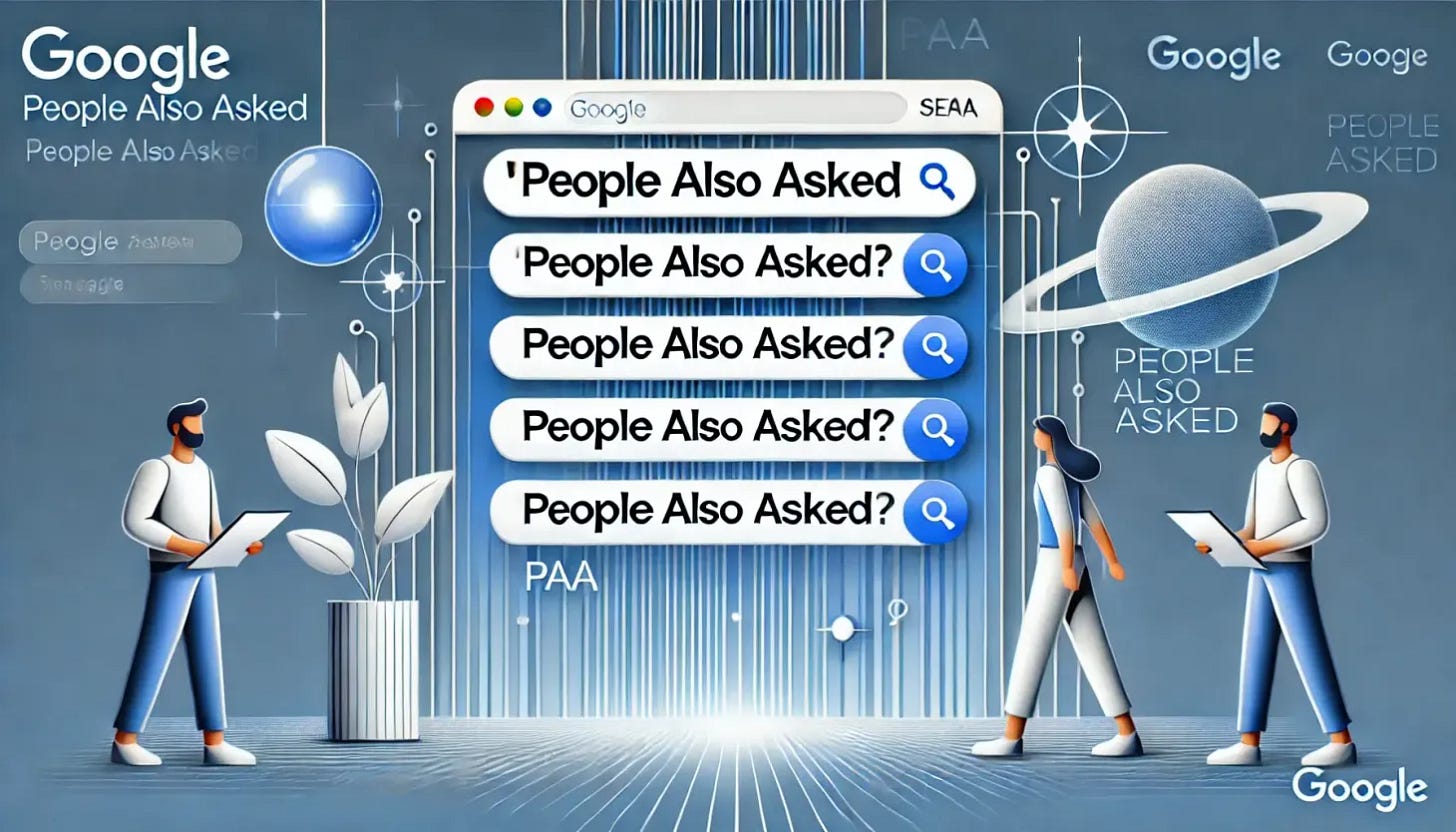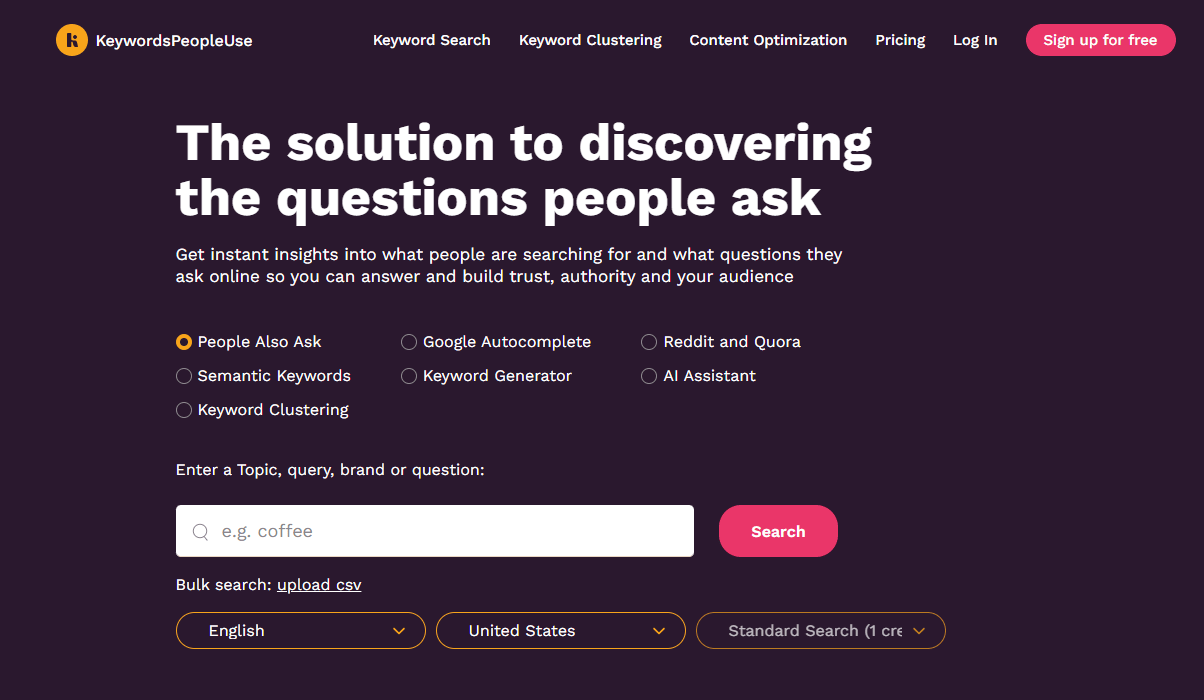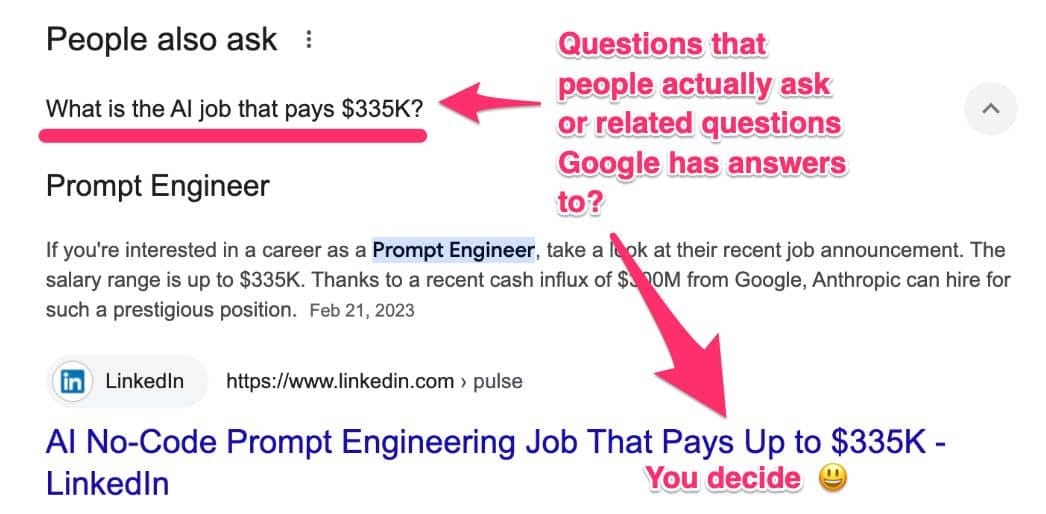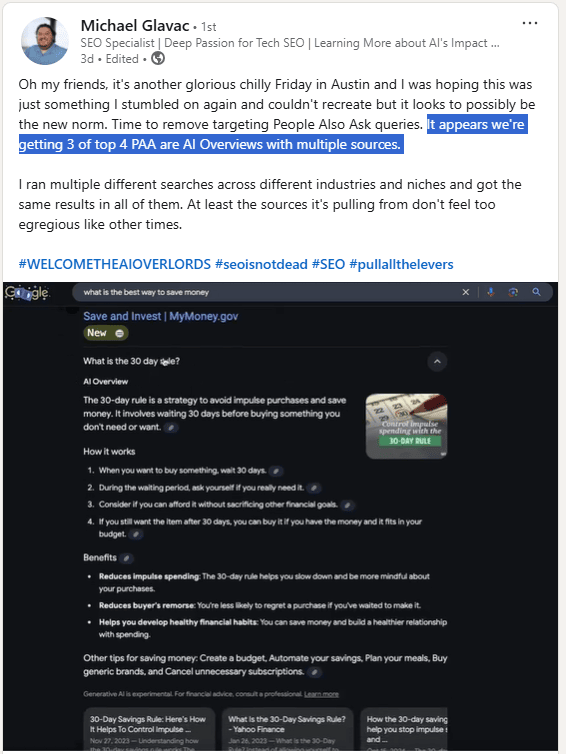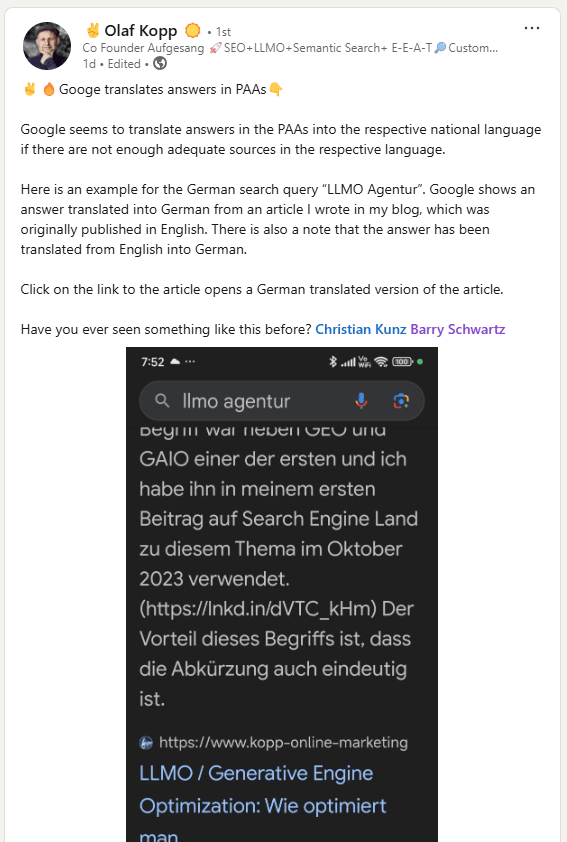People Also Asked: Should We Care?
When we want to optimize our blogs or product pages, one thing everyone recommends is pulling those People Also Asked questions related to the topic from SERPs and including them in the content.
BTW here's my recommended People Also Asked tool, I was using it in my last role at an agency and I find it very helpful because it can also pull FAQs from other sources like Quora and Reddit.
There’s been some buzz around the PAA feature lately, so let’s connect the dots and uncover actionable tactics to optimize for this SERP feature.
The first dot
Steve Toth posted this screenshot a while ago, and I found it very interesting. Are PAA "questions that people actually ask, or related questions Google has answers for"?
I think this is a very interesting question because for so long, we only went after PAA that we can find in SERPs. But this actually means, we should not restrict ourselves to FAQs recommended by tools.
💡 Did the chicken come first or the egg? did people ask those questions first, or did we create answers to those questions first? probably a mix of both.
The second dot
Michael Glavac posted on LinkedIn an instance where he found 3 out of 4 PAA answers are AI Overviews answers with references to multiple sources.
💡 AI Overviews may be or will be coming for PAA with comprehensive answers from multiple sources.
The third dot
Olaf Kopp posted on LinkedIn about an instance where answers to PAA were translated from other sources, if there are not good answers in the respective language.
💡 Google PAA answers can attract international audience and brand visibility. Also, these look like a great opportunity!
The fourth dot
People also asked feature has high volatility! 50% of PAA for a query will change in 6 months, and 99% of them will change in 21 months!
So whatever PAA you find today for SERPs, they may be gone/replaced by different set of PAA in few months.
It seems that google is testing which PAAs to show to users. Obviously using machine learning to analyze which ones users find most beneficial.
The fifth dot (and last I promise)
A recent study by Backlinko found that "On average, only 3% of searchers interact with a “People Also Ask” box. Although this behavior varies widely depending on the query. For example, 13.6% of people searching for supplements clicked on a PAA box."
💡 Not all "People Also Asked" questions are created equal! Depending on your niche, they might be highly valuable to your audience—or not as much.
Connecting the dots (and actionable tips)
From analyzing these five insights we now know that:
Interview customers and listen to sales calls to find relevant important questions. Focus on your user. Because PAA may not necessarily represent actual user questions but rather questions Google has answers for, which means we should look beyond tool recommendations.
If you come across a PAA answer that's translated from another source, this maybe a great opportunity for you to capture if you can provide an answer in the native language of the PAA!
Don't ignore PAA with low or zero search volume. Tools can return PAAs with low or zero search volume, they are equally important and can get shown in SERPs. It seems the criteria for showing PAAs in SERPs is not necessarily the search volume.
We should audit our content for potential improvements and updates periodically. PAA volatility is extremely high (50% change in 6 months, 99% in 21 months), indicating that basing content solely on current PAAs is a short-term strategy.
Including PAA from SERPs in your content optimization is important, but also their level of importance from a business standpoint varies. They may or may not bring you much clicks depending on your niche.
PAA appears to be a key feature that’s here to stay, especially as Google experiments with AI Overviews and even translates answers to expand their reach.
But the user engagement with PAAs varies significantly by niche (3% average vs. 13.6% for supplements), showing that their value depends on your specific industry.
That's that for today folks! Hope you found this useful.
**LLMs have helped me phrase this blog.

